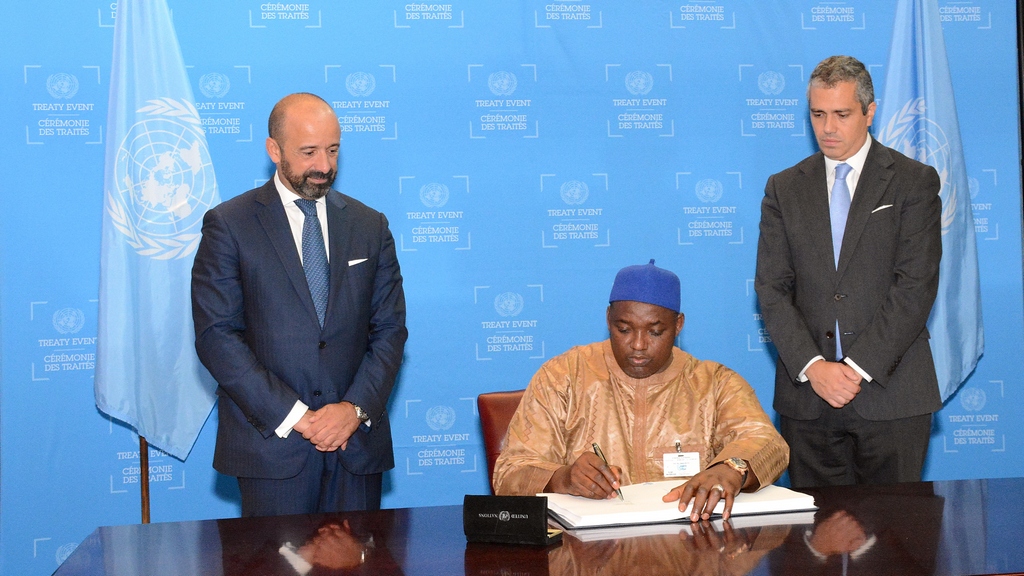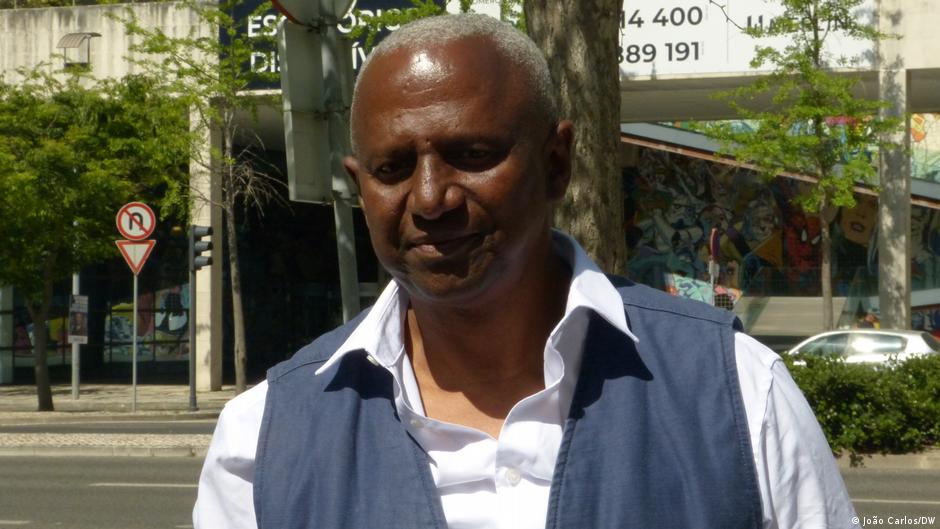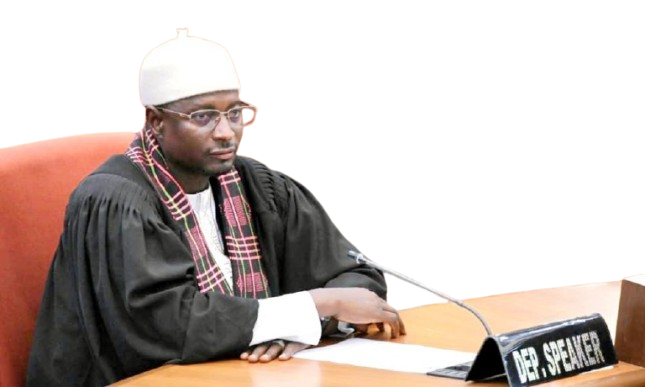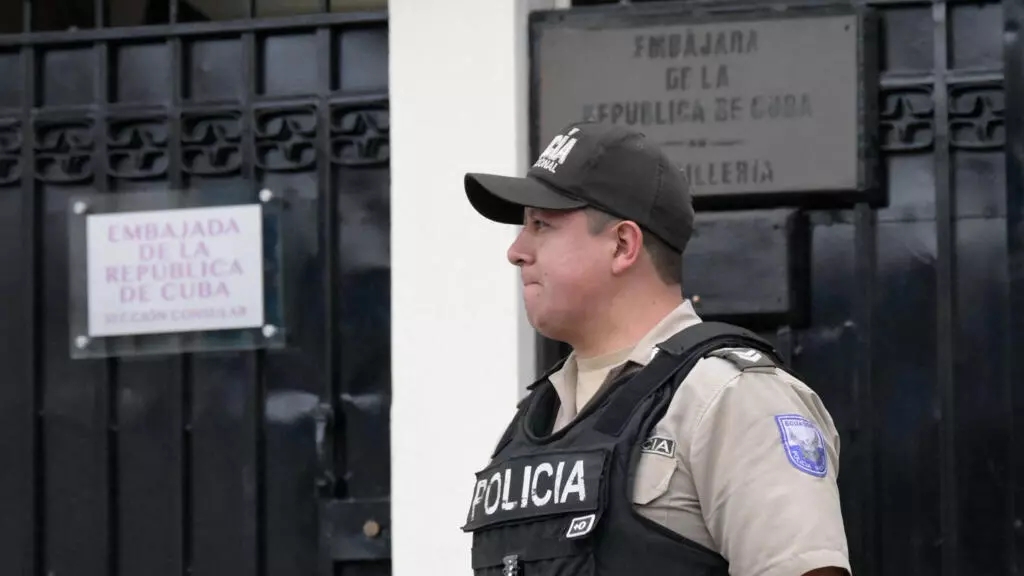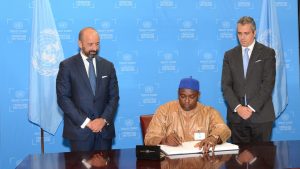Gambiaj.com – (FLORIDA, United States) – In a stark departure from previous U.S. policy, President Donald Trump on Tuesday falsely accused Ukraine of initiating the war that has devastated its territory and claimed thousands of lives. His remarks, which echoed Kremlin talking points, came just days after his administration excluded Ukrainian President Volodymyr Zelensky from U.S.-Russia discussions on ending the war.
Speaking at his Mar-a-Lago resort, Trump claimed that Ukraine should have “made a deal” with Russia before the 2022 invasion, implying that Kyiv was responsible for prolonging the conflict. He also pushed for elections in Ukraine, despite the country’s constitutional restrictions on holding votes during wartime, further fueling speculation that he aims to sideline Zelensky in any future settlement.
A Shift in U.S. Policy?
Trump’s comments starkly contrast with assurances made by his Secretary of State, Marco Rubio, who had earlier stated that any peace agreement would be fair to all parties. However, by excluding Ukraine from the diplomatic process and publicly undermining its leadership, Trump has signaled a dramatic shift in Washington’s stance—from supporting the invaded nation to seemingly legitimizing the aggressor’s claims.
His remarks have heightened anxieties across Europe, where leaders are concerned that Trump may push for a settlement favoring his long-admired Russian counterpart, Vladimir Putin. European allies were also left out of the recent U.S.-Russia talks in Saudi Arabia, adding to fears that Trump is steering Ukraine toward a dictated peace rather than a negotiated resolution.
Trump Undermines Zelensky, Cites Dubious Polling
In his most direct attack on the Ukrainian leader to date, Trump claimed that Zelensky’s approval rating had fallen to “4%” and insisted that elections were necessary for Ukraine to have a say in its own future. However, reliable polling in wartime conditions is difficult, and while Zelensky’s popularity has declined from near-universal approval at the start of the war, Trump’s figures are vastly exaggerated.
Zelensky has defended the decision to postpone elections, citing the logistical and security challenges of holding a nationwide vote while Ukraine remains under siege. Ukraine’s constitution prohibits elections under martial law, and many of its citizens remain displaced or engaged in military service.
Trump’s insistence on democratic processes in Ukraine is particularly ironic given his own refusal to accept the 2020 U.S. presidential election results. Meanwhile, Putin, who Trump has rarely criticized, has maintained power for over two decades through manipulated elections and widespread repression of opposition voices.
Trump’s Revisionist Take on Russia’s Invasion
In his remarks, Trump also appeared to rewrite history, suggesting that Ukraine should have “never started” the war and should have ended it within three years. His statement ignores the reality that Russia launched a full-scale invasion of Ukraine in February 2022, following years of destabilization efforts in the country.
By suggesting that Kyiv should have simply accepted Moscow’s terms to avoid war, Trump appeared to advocate for a scenario in which Ukraine would have either submitted to a pro-Kremlin puppet government or ceded territory to Russian forces—options that Ukraine has consistently rejected as tantamount to surrender.
Adding to the controversy, Trump announced that he might meet Putin by the end of the month, raising concerns that he could make further concessions to Russia in the name of a peace deal. His administration has floated the idea of European troops enforcing an eventual settlement, a proposal swiftly rejected by Moscow and met with skepticism by British Prime Minister Keir Starmer, who is set to visit Washington next week.
Pushback from Within Trump’s Own Party
Despite Trump’s apparent embrace of Putin, not all Republicans are aligned with his approach. Senate Armed Services Chairman Roger Wicker (R-MS) labeled Putin a “war criminal” who should spend the rest of his life in prison. Senator John Kennedy (R-LA) echoed these sentiments, calling the Russian leader “a butcher with Stalin’s taste for blood.”
However, both senators stopped short of directly challenging Trump’s peace overtures, reflecting the broader Republican Party’s reluctance to confront its leader on foreign policy matters.
An Uncertain Future for Ukraine
As Trump continues to reshape the U.S. approach to the Ukraine war, his latest remarks underscore the uncertainty surrounding Washington’s future commitments to Kyiv. By excluding Ukraine from critical peace discussions, endorsing Russian narratives, and signaling a willingness to negotiate directly with Putin, Trump has raised alarm bells among European allies and Ukrainian leaders alike.
With the war still raging and no clear settlement in sight, Trump’s stance suggests that his primary concern is not securing a just peace for Ukraine but rather achieving a political win that he can claim as his own—regardless of the long-term consequences for European security.



